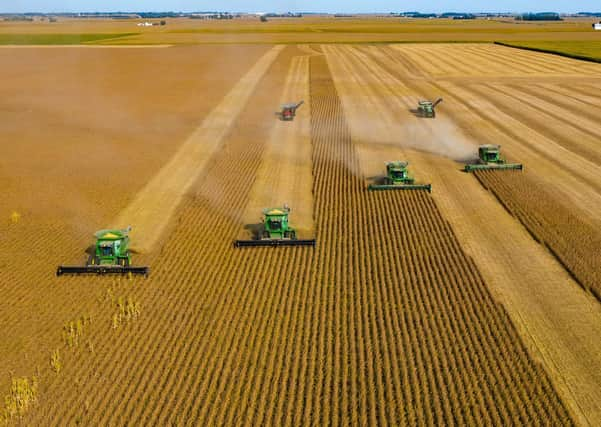The Zero Carbon Harrogate column with Steve Scales: The changing face of farming and its true cost


In recent times the pressure to produce more and more food at lower prices has compounded those challenges, forcing many to make the decision between leaving farming all together or adopting modern farming techniques, which often eschew traditional land and livestock practices for the sake of maximising yield.
The world’s population has grown from 2.7 to 7.8 billion people over the last 70 years and in order to keep pace with the growing demand to feed this number of people, farming practices have been revolutionised. They have become reliant on mechanisation, the use of chemicals and intensive land management practices, on a large scale, which in turn have helped to make farming more profitable. Unfortunately, this approach has put at risk the very future of the land that feeds us.
Advertisement
Hide AdAdvertisement
Hide AdWith food accounting for 25% of those greenhouse gas emissions in the UK and almost half of that associated with farm production, a solution is urgently needed.
Reverting to the more traditional ways of farming may offer that solution.
Based on an understanding of the prevailing land conditions and nature’s own processes they help to ensure sustainability, combining livestock grazing and rotational crop planting, with set aside areas of wild land to encourage wildlife.
They use natural processes to feed and regenerate the land and thereby help to maintain the ecosystems essential for good soil health and the biodiversity needed for healthy crops. This way of farming, however, does not lend itself to large scale production methods, making it difficult to compete with the lower prices that larger scale more modern operations can offer.
Advertisement
Hide AdAdvertisement
Hide AdWe need to find ways to combine the old and the new, reaping the benefits from both and finding the right balance to provide enough food sustainably, whilst limiting greenhouse gas emissions and securing the livelihoods of those who take on the challenge of feeding us.
Agriculture is at the forefront of the battle against climate change and many farmers have already taken up the challenge, recognised that change is needed, but in the words of author James Rebanks “we know that change is needed but we have to work out what the change should be and how it can be delivered – when we are neck-deep in the realities of this age”.
Farmers need our help. In this country we have become used to a seemingly endless supply of relatively low-priced food from around the world but have lost track of where it comes from and how it is produced, which means it has been devalued in our eyes.
If we are to stop climate change, we must learn to appreciate the true cost of food production, in financial, environmental and human terms, and start to pay a fair price that reflects its true value, from those, often small-scale farmers, who put land and nature first.
To find out more about sustainable food supply and the actions needed to limit the emissions associated with it visit www.zerocarbonharrogate.org.uk